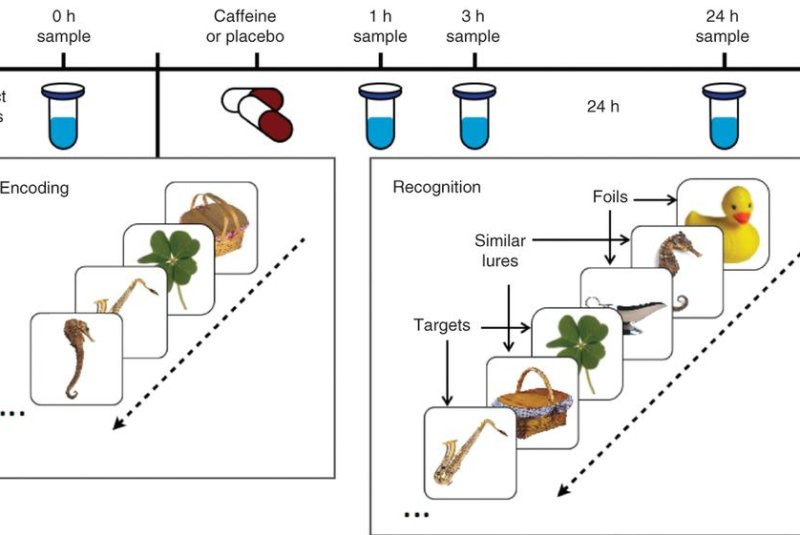Researchers conducted a double-blind test to see whether caffeine-intake could help people remember a set of images 24 hours later.(Credit:John Hopkins University/Nature NeuroScience)
It is known that caffeine can improve focus and attention. but now researchers at John Hopkins University suggest it can also improve long-term memory.
The study, published in the journal Nature Neuroscience, looked at caffeine's effects on memory consolidation over a 24-hour period and its possible uses as a memory enhancer.
Researchers conducted a double-blind trial where participants were asked to study a set of images, after which some of them were given a 200-milligram caffeine tablet and others a placebo. The pills were given five minutes after the images were studied and the participants were not regular consumers of caffeinated products.
Salivary samples were taken before the test, and samples were taken one, three and 24 hours after exposure to the images. Researchers note the caffeine tablets were given after the participants were asked to memorize the images.
The next day participants were asked to match the images they had seen with a new set of images, which had some new additions and some that were similar -- but not identical -- to images seen the previous day.
Members from the caffeine group were able to accurately identify these new images as similar to the ones they saw the previous day rather than erroneously citing them as the same.
"If we used a standard recognition memory task without these tricky similar items, we would have found no effect of caffeine," said Michael Yassa, an assistant professor at the university. "However, using these items requires the brain to make a more difficult discrimination -- what we call pattern separation, which seems to be the process that is enhanced by caffeine in our case."
Pattern separation is the brain's ability to differentiate between two similar but not identical objects.
"Almost all prior studies administered caffeine before the study session, so if there is an enhancement, it's not clear if it's due to caffeine's effects on attention, vigilance, focus, or other factors," Yassa said
Researchers now plan to study the mechanism behind this enhancement and are hoping to find answers that could help tackle diseases associated with cognitive decline like Alzheimer's.
[John Hopkins University]
[Nature Neuroscience]







